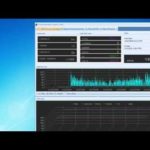FreeSWITCH Vs Asterisk Debate
FreeSWITCH vs Asterisk is a debate of selection a good VoIP(voice over internet protocol) communication platform. Before going to discuss in detail about FreeSWITCH versus Asterisk it would be better to know about in general what they are.
Both are famous telephony platforms that utilize VoIP. On the base of VoIP, these software provides voice communication and multimedia to internet applications through IP networks. They provide provisioning of communication services – voice, SMS, fax, and voice messaging. Most of the communication applications based on Asterisk and FreeSWITCH.
What is Asterisk
Asterisk is to know as famous free and open source PBX(private branch exchange) software solution platform. It supported VoIP and PSTN(public switch telephony network). Asterisk is used by many individuals enterprise and businesses for their communication need. Telephones which are attached to Asterisk can call to each other, and to connect to other telephone services, such as the public switched telephone network (PSTN) and Voice over Internet Protocol (VoIP) services.
By using asterisk you can use voice mail, conference calling, interactive voice response (phone menus), and automatic call distribution etc. It is written in C language and supported cross-platform. It is sponsored by Digium and created in 1999.
What is FreeSWITCH
The most interesting thing about FreeSWITCH is, it is created in 2006 by the ex-developer of Asterisk. It is also free and open source voice and messaging communication platform. This telephony platform designed in such a way that, route and interconnect popular communication protocols using audio, video, text or any other form of media. FreeSWITCH uses Sofia-Sip stack this stack is fully mature robust and complete. It is also supported many other SIP features such as presence/BLF/SLA as well as TCP TLS and sRTP.
FreeSWITCH supported many well-known communication technologies. These technologies are Skype, SIP, H.323, and WebRTC. FreeSWITCH has the ability to perform full video transcoding and MCU functionality using its conferencing module. It is written in C language and supported Mac OS X, Window, ARM operating system.
Freeswitch video conference features allow you can do playback and record with video support, so you can do things like ‘record’ and stream to a live YouTube event over RTMP, etc. Also, mod_verto now adds the ability to select video settings like resolution, bandwidth, camera selection and desktop sharing, all these features are demonstrated in the Verto HTML Demo page.
Key Differences Between Asterisk and FreeSWITCH:

After the clarification of this two communication platform, we move further to discuss differences between FreeSWITCH and Asterisk.
Scalability
Asterisk is not the good platform for the higher volume of calls. Becuase it used shared resources therefore in the case of provisioning calls it is not a suitable platform. In a case of high call volume, you can encounter occasional deadlocking, race conditions, and potential data corruption. While on the other hand, FreeSWITCH is scalable communication platform. It can easily handle high capacity volumes of call. In scalability case, FreeSWITCH is the better choice for those who want to utilize high volumes of calls.
Configuration
Asterisk use a simple file for dial plan and configuration. Therefore, we can say that configuration of the asterisk is simple. While FreeSWITCH uses XML file for configuration and dial plan. It consists of manual configuration and maintenance. XML has its own method of writing the file. It is little difficult. So we can say that Asterisk is more easy to use as compare to FreeSWITCH.
PBX And Softswitch
The biggest difference between two communication platform is, Asterisk is PBX(private branch exchange) solution and framework for developing communication applications. While FreeSWITCH is just a Softswitch.
Flexibility
Both applications are flexible in use. They provide the features of expandability. We can say that FreeSWITCH is more flexible as compared to Asterisk. Because FreeSWITCH supported multiple languages such as .NET, JavaScript, Perl, C++, Python, and FreeSWITCH library easily embed with other applications.
Licensing
Asterisk comes with dual licensing. One license of Asterisk is free and other is proprietary. The free license comes under the general public license. While FreeSWITCH is completely free communication software solution. It is released under the Mozilla Public License.
Asterisk Or FreeSWITCH? – Which one is better
Both have their strengths, but your specific business needs will determine which platform suits you best.
For VoIP experts, Asterisk is great for customization and integration into existing systems, whereas FreeSWITCH might be more beneficial for businesses scaling rapidly.
Some main features of Asterisk
- It provides ADSI On-Screen Menu System
- It provides Alarm Receiver
- It provides Append Message
- It provides Authentication
- It provides Automated Attendant
- It provides Blacklists
- It provides Blind Transfer
- It provides Call Detail Records
- It provides Call Forward on Busy
- It provides Call Forward on No Answer
- It provides Call Forward Variable
- It provides Call Monitoring
- It provides Call Parking
- It provides Call Queuing
- It provides Call Recording
- It provides Call Retrieval
- It provides Call Routing (DID & ANI)
- It provides Call Snooping
- It provides Call Transfer
- It provides Call Waiting
- It provides Caller ID
- It provides Caller ID Blocking
- It provides Caller ID on Call Waiting
- It provides Calling Cards
- It provides Conference Bridging
- It provides Database Store / Retrieve
- It provides Database Integration
- It provides Dial by Name
- It provides Direct Inward System Access
- It provides Distinctive Ring
- It provides Distributed Universal Number Discovery (DUNDi™)
- It provides Do Not Disturb
- It provides E911
- It provides ENUM
- It provides Fax Transmit and Receive
- It provides Flexible Extension Logic
- It provides Interactive Directory Listing
- It provides Interactive Voice Response (IVR)
- It provides Local and Remote Call Agents
- It provides Macros
- It provides Music On Hold
- It provides Music On Transfer
- It provides Flexible Mp3-based System
- It provides Random or Linear Play
- It provides Volume Control
- It provides Privacy
- It provides Open Settlement Protocol (OSP)
- It provides Overhead Paging
- It provides Protocol Conversion
- It provides Remote Call Pickup
- It provides Remote Office Support
- It provides Roaming Extensions
- It provides Route by Caller ID
Some Main Features of FreeSwitch
- It provides WebRTC support
- It is Centralized User/Domain Directory
- It provides Nano Second CDR granularity
- It provides Call recording
- It provides High-Performance Multi-Threaded Core engine
- It provides Configuration via cURL to your HTTP server
- It provides Protocol Agnostic
- It provides ZRTP support for transparent RTP based key exchange and encryption
- It provides Configurable RFC 2833 Payload type
- It provides Inband DTMF generation and detection.
- It provides Software based Conference no hardware requirement
- It provides Wideband Conferencing
- It provides Media / No Media modes
- It provide Proper ENUM/ISN dialling built in
- It provides Detailed CDR in XML
- It provides Radius CDR
- It provides Subscription server
- It provides Shared Line Appearances
- It provides Bridged Line Appearances
- It provides Enterprise/Carrier grade Eventing Engine.
- It provides Loadable File formats and streaming
- It provides Stream to and play from Shoutcast and Icecast
- It provides Multi-lingual Speech Phrase Interface
- AIt provide SR/TTS support (native and via MRCP)
- It provides Basic IP/PBX features
- It provides Automated Attendant
- It provides Custom Ring Back Tones (Early Media)
- It provides XML-RPC support
- It provides Multiple formats CDRs supported
- It provides SQL Engine provides session persistence
- It provides Thread Isolation
- It provides Parallel Hunting
- It provides Serial Hunting
- It provides Paid support available
- It provides Free support via IRC & E-mail
Asterisk Supported Codecs Features are:
- ADPCM
- CELT (pass through)
- G.711 (A-Law & μ-Law)
- G.719 (pass through)
- G.722
- G.722.1 licensed from Polycom®
- G.722.1 Annex C licensed from Polycom®
- G.723.1 (pass through)
- G.726
- G.729a
- GSM
- iLBC
- Linear
- LPC-10
- Speex
- SILK
FreeSWITCH supported codecs Features are:
- CELT (32 kHz ahd 48 kHz)
- G.722.1
- G.722.1C
- G.722 =
- G.711
- G.726
- G.723.1
- G.729AB
- AMR
- iLBC
- Speex with RFC 5574 fmtp support
- LPC-10
- DVI4 8 kHz and 16 kHz
- SILK
- OPUS – RFC 6716
FreeSwitch Supported Video Codecs Features
- Theora
- H.261
- H.263
- H.264
- MP4
FreeSWITCH Vs Asterisk Reviews
According to Reddit Member Reviews:
ravi_s –
I work for an ITSP (VoicePulse), and much like the rest of the VoIP world, we’ve used Asterisk more than FreeSWITCH, but collectively, we have experience with both.
I haven’t really paid much attention to FreeSWITCH in the last several years, so keep in mind that it’s possible some of my opinions might be out of date.
That said, /u/stgnet is right in saying that they’re fairly comparable in terms of features. I think you’d be hard pressed to find anything that you could do with one which you couldn’t accomplish with the other.
Asterisk tends to be lighter on hardware requirements, and has a much larger support community. FreeSWITCH on the other hand does allow for higher call capacity given identical hardware (or at least it used to, I haven’t run a comparison of recent versions), and makes things like multi-tenancy significantly easier.
FreeSWITCH also uses XML for the configs, which can be kind of annoying if you find yourself making frequent changes.
I started out using Asterisk because that used to be the only option back in 2003, and it was (and still is) great software that does its job very well. We built some FreeSWITCH boxes about 5 or so years ago just to try it out, and they’re still up and handling a decent amount of calls today with very little required attention.
Ultimately we primarily use Asterisk though, because while FreeSWITCH functions perfectly fine, I didn’t really see a huge advantage to using it over Asterisk and in the end we’re just more familiar and comfortable with Asterisk.
You didn’t really say anything about your application, so I can’t make much of a recommendation based on that, but I’d say if you are in the VoIP industry and will be dealing with PBXes frequently, it might be worth having some experience with FreeSWITCH.
However if this is something that you’re just want to get setup, working, and forget about it, I’d say go with Asterisk to leverage the larger community as it will make your life easier in the long run. There are web UI’s you can overlay on either one, so that isn’t much of a factor either.
According to DSL Reports Members Review:
mgraves1-
At the moment Freeswitch has the edge in some areas, Asterisk in others.
For example, Asterisk is limited to wideband sample rates of 16 KHz, which means support for G.722, Siren7 and SPEEX codecs. Freeswitch is more flexible in its support of a variety of sample rates up to 48 KHz, and supports a bit larger range of codecs including CELT & Siren 14.
Asterisk has a larger user base and ecosystem of support in software & hardware.
I’m likely to start experimenting with Freeswitch as a module on a new pfsense router that I want to build this week. That gives me Freeswitch with a decent GUI as a testbed.




